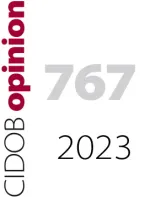The Cities Summit of the Americas: a commitment to synchronous diplomacy

Relations between city governments and their nation-states may be synchronous, competitive or both. The Cities Summit of the Americas held in Denver (USA) in April showed the multiple potential benefits, in an increasingly urbanised world, of seeking synergies between the different forms of public diplomacy.
On June 1st 2017, as he announced the decision (formalised three years later) to withdraw the US from the Paris Agreement, then President Donald Trump said that he had been elected to represent the citizens of Pittsburgh, not Paris. Immediately, Bill Peduto, Pittsburgh’s mayor at the time, repudiated the president's decision on behalf of his city. The same day, Peduto and another 406 US mayors issued a statement of their commitment to honour the goals of the international agreement to fight climate change.
The Trump era provided the most vivid possible illustration of what happens when a country's local governments join forces to promote policies of global interest, like climate action, despite facing disinterest and even opposition from their national governments. To overcome the political and administrative constraints imposed by the federal government, US cities sought out synergies with multiple actors and alliances with counterpart cities beyond their borders. But while they received substantive support from international city networks, for US cities the clash with the White House remained a key weak point. Even as they increased their efforts to limit global warming at local level, the framework in which US cities could act was inevitably constrained by the absence of US leadership in the fight against climate change at international level.
But what happens when cities and their countries are aligned internationally and operate in harmonious synchrony? In fact, the US today provides the best basis for sketching out an answer. Two years into Joe Biden's presidency, the country has come full circle, and the State Department has put forward a strategy for strengthening subnational diplomacy. It is based on an acknowledgement that the external action of cities and states can and should be a powerful tool for strengthening US diplomacy. The strategy will be implemented in a context of competition with China for hegemony in the global order and of major geopolitical tensions deriving from the conflict in Ukraine.
One clear sign of this more expansive vision at work is the decision to make Nina Hachigian the first Special Representative for City and State Diplomacy within the State Department. A career diplomat and former deputy mayor of Los Angeles for international affairs, Ambassador Hachigian's mission is to act as a bridge between US foreign policy and the increasingly important international action conducted by large cities and states, placing her at the head of an endeavour that is unprecedented either at domestic or global level. The initiative counts on the support of some of the country's leading academic centres, think tanks and philanthropic organisations, including the German Marshall Fund, the Brookings Institution, the Truman Center and Bloomberg Philanthropies, to name a few.
Holding the first Cities Summit of the Americas in Denver from April 26–28th formed part of this strategy. The meeting showcased the Biden administration's desire to strengthen ties across the Americas via political dialogue with local leaders from across the region. Indeed, some of the region's most influential politicians were in Denver, including the mayors of Bogotá, Mexico City and Montevideo – the last two of whom are potential presidential candidates in their countries – along with the mayors of Atlanta, Miami and Rio de Janeiro. Also in attendance were representatives of the main city networks operating in the Americas and at global level (UCLG, Metropolis, C40, ICLEI and Mercociudades), development banks like the IDB and CAF, some of the most prestigious US academic institutions and think tanks, and representatives from the private sector and civil society.
The discussions in Denver touched on topics as wide-ranging as climate action, promoting gender equality and infrastructure financing. However, while underlining cities’ fundamental contribution to addressing global challenges, the meeting emphasised the imperative of protecting democracy at local level, as Secretary of State Blinken highlighted at the summit’s conclusion. Fostering regional political dialogue by promoting subnational diplomacy and the relevance of the democratic agenda underpin a commitment that acquires greater significance amid today’s major geopolitical tensions and renewed confrontation between blocs.
Little surprise, then, that despite not hailing from the Americas, several Ukrainian mayors participated in the event, including the mayor of Kiev, Vitali Klitschko. Inter-city links are proving to be key channels for raising awareness of the support for Ukraine, as the US government is well aware. Similarly, putting the democratic agenda on the table and highlighting shared values sends a clear message to Latin American governments about China's growing economic and commercial influence in the region – a matter of real concern in Washington. Finally, the success of the Denver summit should help other global players like the EU take note of the important role of mayors in political dialogue. On the eve of the bi-regional EU–CELAC Summit, Brussels should not neglect this reality, which the US State Department has interpreted so well.
Keywords: cities, Denver Summit, Summit of the Americas, United States, public diplomacy, foreign action, political dialogue, EU-CELAC